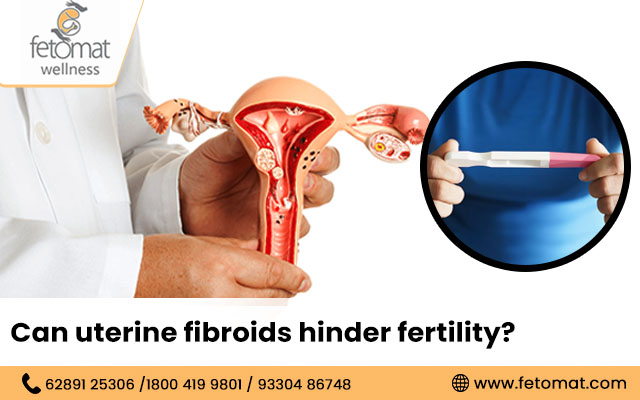Uterine fibroids, noncancerous growths in the uterus, are a common concern among women, particularly those trying to conceive. While many women with fibroids have successful pregnancies, these benign tumours can indeed impact fertility in some cases. Find out more from the best infertility doctor in Kolkata.
How do uterine fibroids affect fertility?
Fibroids vary in size, number, and location within the uterus. Depending on their size and location, they may or may not affect fertility. Here’s how uterine fibroids can potentially hinder fertility.
1. Interference with Implantation: According to the doctors of the top fertility clinic in Kolkata, fibroids located inside the uterine cavity or near the lining can interfere with the implantation of a fertilized egg. Submucosal fibroids, specifically, protrude into the uterine cavity and may affect the embryo’s ability to implant properly, reducing the chances of conception.
2. Distortion of the Uterine Cavity: Large fibroids or multiple fibroids can distort the shape of the uterus, potentially affecting the movement of sperm or the implantation and development of the embryo. This distortion might prevent sperm from reaching the egg.
3. Blockage of Fallopian Tubes: In some cases, fibroids near the fallopian tubes can block these tubes, hindering the passage of the egg from the ovaries to the uterus or affecting the sperm’s ability to reach the egg.
4. Impact on Blood Flow: Fibroids can also affect the blood flow to the uterine cavity or the lining, which may interfere with the implantation process.
Infertility treatments for uterine fibroids
If fertility issues are suspected due to fibroids, seeking fertility treatment from a reputed doctor can help. Specialists can assess the size, number, and location of fibroids using imaging techniques like ultrasound or MRI. Treatments may include:
1. Surgical Interventions: Procedures like myomectomy (surgical removal of fibroids) can be considered, especially if fibroids significantly affect fertility.
2. Medication: Hormonal treatments or medications are often prescribed to regulate menstrual bleeding and shrink fibroids temporarily.
3. Assisted Reproductive Techniques (ART): In cases where fibroids pose challenges to conception, procedures like in vitro fertilization (IVF) might be recommended.
Reaching out to the best infertility doctor is crucial for tailored guidance and appropriate treatment options to address fibroids and optimize fertility potential.

